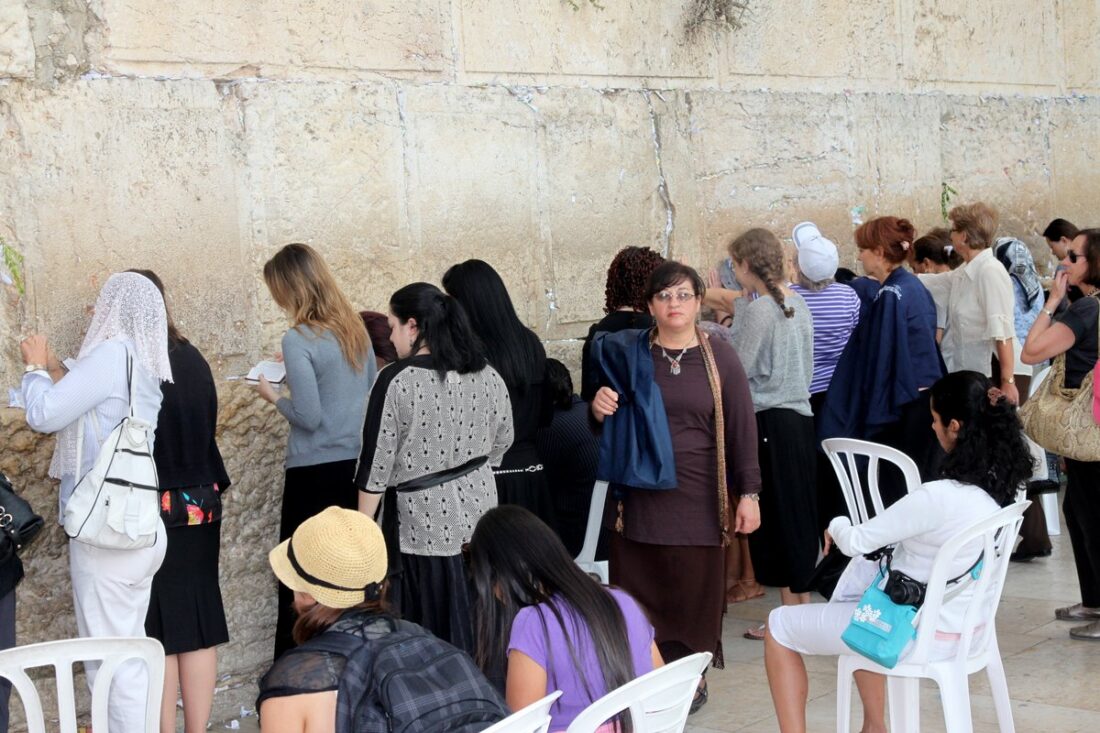For Benjamin Netanyahu, Israel’s former prime minister, political survival is not only a means to an end, but an indicator of his true persona.
Several days ago, Netanyahu — a secular Jew in every respect — showed his true colors when he retweeted an appallingly divisive message from Aryeh Deri, the leader of the ultra-Orthodox Shas Party, which holds nine seats in the Knesset and has supported Netanyahu’s governments in the past.
In his tweet, Deri tacitly urged his followers to disrupt a monthly prayer service by Women of the Wall, a non-Orthodox group, at the Western Wall in Jerusalem. He called on “everyone for whom the sanctity of the Western Wall is important to come and pray with us, so that, God forbid, the holy place will not be desecrated.”

Deri’s admonition was in keeping with his outrageous view that men and women should not be permitted to pray together at the Western Wall, one of the holiest sites in Judaism.
In accordance with this position, ultra-Orthodox Jews, some from Deri’s right-wing party, have staged noisy protests to intimidate and harass Women of the Wall, most of whose members observe the rites of Conservative and Reform Judaism.

Founded in the late 1980s, Women of the Wall seeks “to attain social and legal recognition of our right, as women, to wear prayer shawls, pray, and read from the Torah, collectively and aloud, at the Western Wall.”

This is its central mission, yet scandalously enough, its acolytes have sometimes been physically attacked or prevented from bringing in Torahs to the Western Wall.
Over the years, these unruly incidents have been an embarrassment to the Israeli government. Only in Israel, the Jewish state, are Jewish women seeking equality of worship treated like pariahs.
Five years ago, when Netanyahu was prime minister, an agreement was signed to establish a special prayer site for non-Orthodox women at the Western Wall. Yet just a year later, under pressure from his ultra-Orthodox allies, he suspended the accord. He promised to come up with a “compromise” solution, but never presented one while still in office, thereby betraying Women of the Wall and placing it in jeopardy.
Netanyahu’s rank betrayal is proof that he cannot be trusted to abide by his word.
We have seen this movie before.

In 2020, following Israel’s third election in two years, Netanyahu convinced Benny Gantz, the leader of the centrist Blue and White Party and the former chief of staff of the armed forces, to join his government as minister of defence.
By the terms of their rotation agreement, Gantz would replace Netanyahu as prime minister within a specific time frame. Gantz was warned that Netanyahu would not honor his pledge, but he ignored that advice to his detriment. Netanyahu cynically wriggled out of the solemn agreement by failing to table a budget, a cheap but clever trick designed to bring down his government and force a new election.
That election, the fourth in two years, took place last March and left Netanyahu — Israel’s longest-serving prime minister — adrift. Try as he might, he was unable to form a coalition government with a parliamentary majority in the Knesset.
As a result, Naftali Bennett of the far right-wing Yamina Party, and his partner, Yair Lapid of the centrist Yesh Atid Party, managed last June to assemble one of the most diverse governments in Israeli history and to end Netanyahu’s unprecedented 12-year consecutive reign as prime minister.

To remain in power, Prime Minister Bennett and alternate premier Lapid, who serves as foreign minister as well, were obliged to present a state budget.
Netanyahu pulled out all the stops to sabotage it, knowing full well that Bennett’s “government of change” would fall if the budget was not passed a majority. Netanyahu’s ultra-Orthodox partners backed his maneuver, and in exchange, he fully endorsed their anti-Women of the Wall rhetoric.
Much to his bitter disappointment, the budget was passed a few days ago by a slender margin of 61-59. Bennett regarded the vote as a milestone, his greatest achievement as prime minister and an endorsement of his government.
Netanyahu’s former ally, Housing Minister Ze’ev Elkin, was ecstatic, claiming “the Netanyahu era in Israeli politics is over.”
It’s unclear whether this is true.
As opposition leader, Netanyahu, 72, has no apparent intention of resigning, being convinced he is indispensable and destined to reclaim his old job. Netanyahu has almost finished writing his political autobiography, and according to reports, he will use it in the next election campaign to promote himself and his Likud Party.
Certainly, Netanyahu’s continued presence in politics is to Bennett’s advantage. As long as Netanyahu is still around, Bennett and his cabinet ministers will do everything possible to keep their coalition intact.
As one observer recently put it, “Despite the many potential crises endangering this coalition, only one strategic disaster could inflict a knockout blow — a decision by Netanyahu to quit politics. Netanyahu is the magnet holding the coalition components in place, the engine enabling this unwieldy entity to keep moving forward. If he vanishes, he takes with him the glue binding the government’s eight parties. While quite a few of the coalition’s components, especially Justice Minister Gideon Saar and Finance Minister Avigdor Liberman, want to complete the task of removing Netanyahu from political life forever, in their heart of hearts many members of the coalition are hoping he will hang around — forever.”

Being a fighter, Netanyahu may well grant them their wish. His record attests to his resiliency. Initially elected as prime minister in 1996, he was unseated by Ehud Barak in the 1999 election, only to bounce back a decade later.
Netanyahu’s age is against him, as is his criminal indictment on corruption charges of bribery, fraud and breach of trust. But he should not be counted out as a contender, at least not yet.
Expect the unexpected in Israeli politics.
